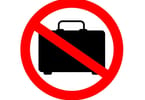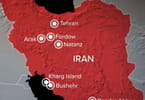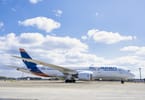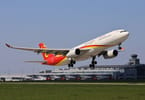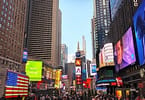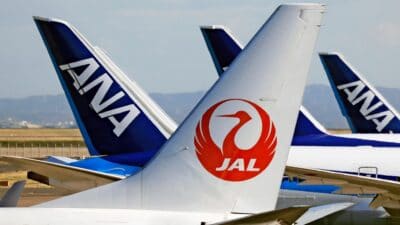Businesses in normal countries take getting around for granted. They can distribute, export and attract workers and customers from wide areas.
In the Israeli-occupied West Bank, access to more than half of the land is restricted. Israel has ultimate control of roads, energy, water, telecommunications and air space.
The violent Palestinian intifada (uprising) of 2000 triggered an Israeli security crackdown, creating checkpoints on key routes, closing roads and putting 600 obstacles around Israel’s West Bank settlements.
A journey of 30 minutes could stretch into hours.
An Israeli barrier of fence and concrete wall now seals off much of the West Bank. At a handful of crossing points, freight heading for the Jewish state is screened for security.
A decade of what the Palestinians call “closure” created higher transaction costs, uncertainty and inefficiency.
But violence has fallen significantly. The Palestinians have established an effective security force, with American help.
Israeli Prime Minister Benjamin Netanyahu says that in addition to the classic, top-down peace process, he can build peace from the bottom up by boosting the Palestinian economy.
This summer he began removing major internal checkpoints.
Wary Palestinian businessmen say these can easily be re-established, so their operating environment remains fraught with unpredictability. But with easier movement, trade is indeed on the rise in places, and as a result there are more jobs.
Reuters reporters took the pulse in five West Bank cities:
NABLUS, from Atef Saad
This northern city was the West Bank’s commercial hub until the Palestinian uprising that began in 2000 when it was virtually sealed off by the Huwara checkpoint, known for years as one of the toughest in the occupied territory.
In the past five years 425 companies left for Ramallah to escape the economic siege, according to Omar Hashem of the Nablus Chamber of Commerce. But 100 returned this year, he said.
“In the past four months, there has been considerable improvement in Nablus’ trade situation, after Israeli authorities eased restrictions at military checkpoints.”
This allows thousands of Arab Israelis to go shopping in Nablus, which was forbidden. As yet, it is Saturdays only.
Unemployment has decreased from 32 to 18 percent, said Hashem, and life is easier for hundreds of government employees and Nablus professionals who used to stay in Ramallah five days a week to avoid the tedious checkpoints.
But trade is still subject to Israeli control.
“Only 1,800 of the 6,500 registered members of the Nablus chamber of commerce have commercial permits from the Israeli authorities,” Hashem said. “We need 1,200 more at least.”
JENIN, from Wael al-Ahmad
“There is an improvement after easing restrictions at some checkpoints but that does not noticeably reflect on the volume of trade,” said Talal Jarrar of the Jenin chamber of commerce.
Palestinian security banished the city’s anarchy of the early decade but “investors do not yet have confidence that such a state of law and order will last,” he said.
“There are tremendous restrictions on entry to Jenin of our people. They can’t drive in, they can’t stay more than five or six hours. Limited shopping does not revive an ailing economy.”
BETHLEHEM, from Mustafa Abu Ganeyeh
“We have heard from Netanyahu a lot about developing the Palestinian economy … but Israel is not taking any serious action so far,” said Samir Hazboun of the Chamber of Commerce.
“The only change we saw is the reduction of the waiting time at Wadi al Nar checkpoint,” he said. Highway 90 down the Jordan Valley remains closed to Palestinian trucks, needlessly adding to the cost of moving farm produce to Bethlehem.
But Hazboun said local unemployment fell to 23 percent this year from 28 percent in mid-2008. Tourism was doing better and there were more hotels and small businesses in Bethlehem.
The director of ACA logistics, who did not want her name published, said checkpoint uncertainty plagued her business.
“Between Bethlehem and Hebron, the road now is easy and open. But nothing is guaranteed. If Israel wants to close the main road, the process will take two hours or more.
“Between Bethlehem and Ramallah we sometimes go through the Wadi al Nar checkpoint easily, and we sometimes wait hours.”
HEBRON, from Haitham Tamimi
The economy of this volatile city, where Israeli settlers occupy homes near a Jewish religious site under army protection, shows little sign of improvement, say some local businessmen.
“Our latest statistics show no economic growth,” said Maher Al-haymoni, director of the Chamber of Commerce. “There are many checkpoints and inspection terminals. Drivers wait for hours.”
World Bank figures say the average crossing time at the Tarqumia crossing in and out of Israel is 2-1/2 hours, less than many truckers into the European Union expect to wait.
One Hebron businessman had no complaints.
“We are doing fine, great,” said Abu Haitham, who runs one of the biggest shoe factories in the West Bank.
“Most of my product goes to Israel. The market has improved lately. My partner in Israel is asking for more now. This creates job opportunities. I need to hire more workers.”
Taxi-fleet owner Abu Nail al-Jabari was less effusive.
“It’s getting a little faster for us to travel to major West Bank cities,” he said. “But there are 400 (Israeli-made) earth mounds and other physical obstacles on roads in the West Bank.
“Driving city to city is easier than two years ago but serving villages is hard. Detours take up fuel, time, money.”
RAMALLAH, from Mohammed Assadi
This city is the envy of the others. As the administrative capital close to Jerusalem in the biggest conurbation of the region, Ramallah benefited from the sense of remoteness felt in cities like Nablus closed off behind Israeli checkpoints.
People have moved in and it has grown. There are two international hotels under construction, including a Moevenpick which was mothballed for years after the 2000 uprising began.
Arab Hotels CEO Walid al-Ahmad, whose firm is quoted on the Palestine stock exchange, owns the Movenpick project and expects the hotel to be ready to open by the end of this year.
“We are speeding the up the process because Ramallah needs its first five-star hotel. And there’s some stability due to the improved security environment.” he said. “We’ve got high hopes.
“The activity in Ramallah is at the expense of the activity in Jerusalem and the rest of West Bank cities,” says entrepreneur Mazen Sinokrot, because it is the seat of the Palestinian Authority, big companies and bank headquarters.
He attributed the city’s boom to the influx of investors from East Jerusalem, where they feel Israeli measures to assert their sovereignty over the city have become too burdensome.
“Our sales are much better than before,” said Adel Alrami, who sells new Ford and Mazda care. “Business is better than 2008 and 2007. I think this is because banks are giving loans. They give loans up to six years without a downpayment.”
GAZA, from Nidal al-Mughrabi
Under what the World Bank calls the “extreme closure” of a tight Israeli blockade, the Mediterranean coastal enclave where 1.5 million Palestinians live is now all but divorced from the economy of the West Bank.
Its public sector is paid from foreign aid cash trucked in by security vans. It gets much of its food and energy in United Nations and European Union aid, and some it brought in commercially under Israeli inspection.
Most other goods are supplied by a smuggling industry running tunnels under the border with Egypt.
Gaza is controlled by the Islamist Hamas group hostile to the Palestinian leadership in the West Bank and resistant to Western demands that it accept Israel’s right to exist and forego armed resistance.
Israel launched a military offensive against Hamas last December to stop its forces firing rockets into Israeli territory and over the course of three weeks inflicted enormous damage on the enclave and killed more than 1,000 people.
International donors have pledged some $4 billion for Gaza’s reconstruction but a ban on the import of cement and steel has prevented the work from starting.
IHE Ị GA-Ewepụ na edemede a:
- This northern city was the West Bank’s commercial hub until the Palestinian uprising that began in 2000 when it was virtually sealed off by the Huwara checkpoint, known for years as one of the toughest in the occupied territory.
- Unemployment has decreased from 32 to 18 percent, said Hashem, and life is easier for hundreds of government employees and Nablus professionals who used to stay in Ramallah five days a week to avoid the tedious checkpoints.
- But with easier movement, trade is indeed on the rise in places, and as a result there are more jobs.



